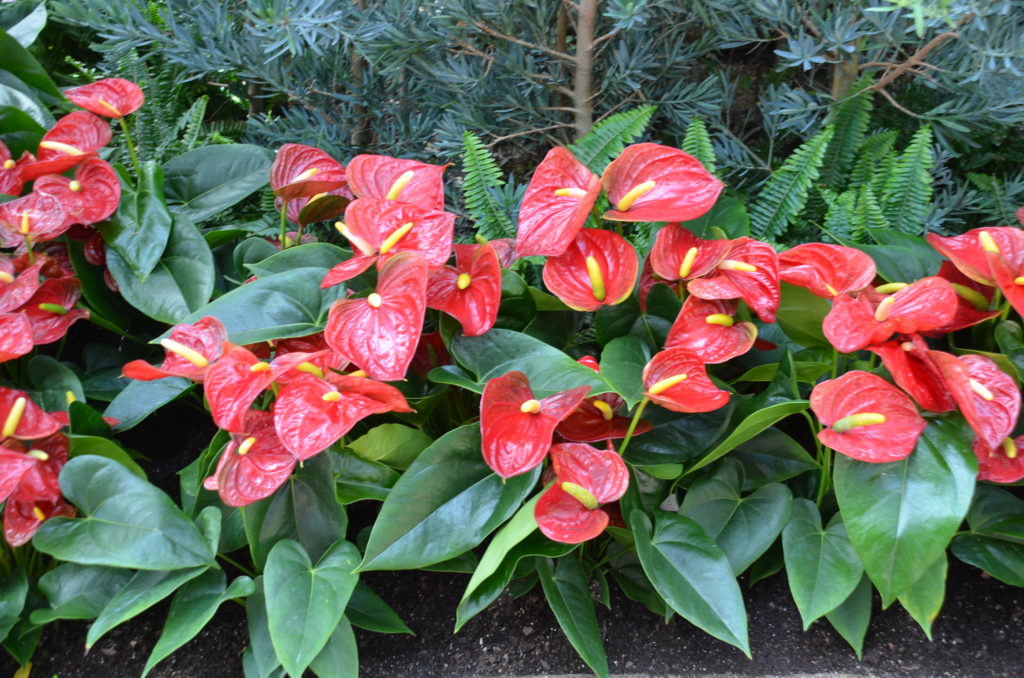
Anthuriums are easy to grow houseplants. They have become wonderful plant gifts around the holidays and birthdays. First and foremost, anthuriums are low light tropical plants. They grow best in bright, indirect light, but produce fewer flowers in low light.
Anthuriums sport long-lasting glossy, deep-green leaves and sturdy flowering bract-like blooms. The flowers of an anthurium is actually a
spiky spadix that grow out of the plant stem surrounded by a spathe or modified leaf. Spathe colors vary from red, pink, coral and white. In warm southern areas (USDA zones 10 or higher), plants can be grown outdoors in shady outdoor areas where their bright, heart-shaped blooms stand out.
Do not place anthuriums in direct sunlight as the leaves will sunburn, lose their color or suffer from leaf edge scorch. Anthurium care also demands that the soil drains freely but retains some water. Plants prefer warm temperatures between 70 – 90° F and will stop growing when room temps drop into the low fifties. Room humidity is best above 50%, best achieved by daily spritzing plants or setting pots on wet gravel. As a houseplant, grow in a potting soil designated for tropical plants. In the deep South, plant in a well-drained garden spot or container.
Anthuriums are susceptible to root rot… so too much water can cause the roots to die. Plants do not require much fertilizer. Feed with a weak one-quarter (1/4) strength fertilizer solution once every 3 to 4 months. Feed with water soluble products like Miracle-Gro™ or Peters™ that contain a high amount of phosphorus (P).
Their thick leaves are generally not troubled by insects that chew leaves. Occasionally, sucking insects like aphids, mealy bugs, and mites may feed on plant sap. Catch infestations early and spray a Pyrethrin-based insecticide, a horticultural soap, or oil spray.
Anthuriums need to be repotted every 2-3 years or earlier if water quickly pours through and out the drainage hole. Potbound plants have roots circling around the surface of the potting soil or some roots growing through the drainage holes.
Warning: Anthuriums are poisonous if ingested and the sap may also cause skin irritation.

 Posted in
Posted in 
